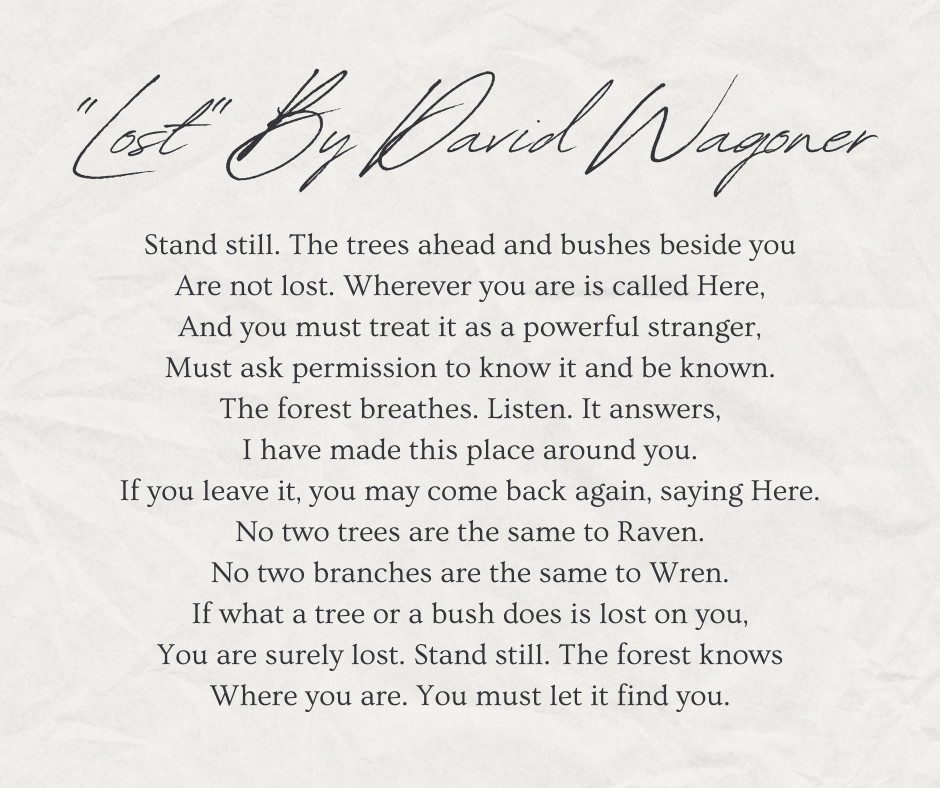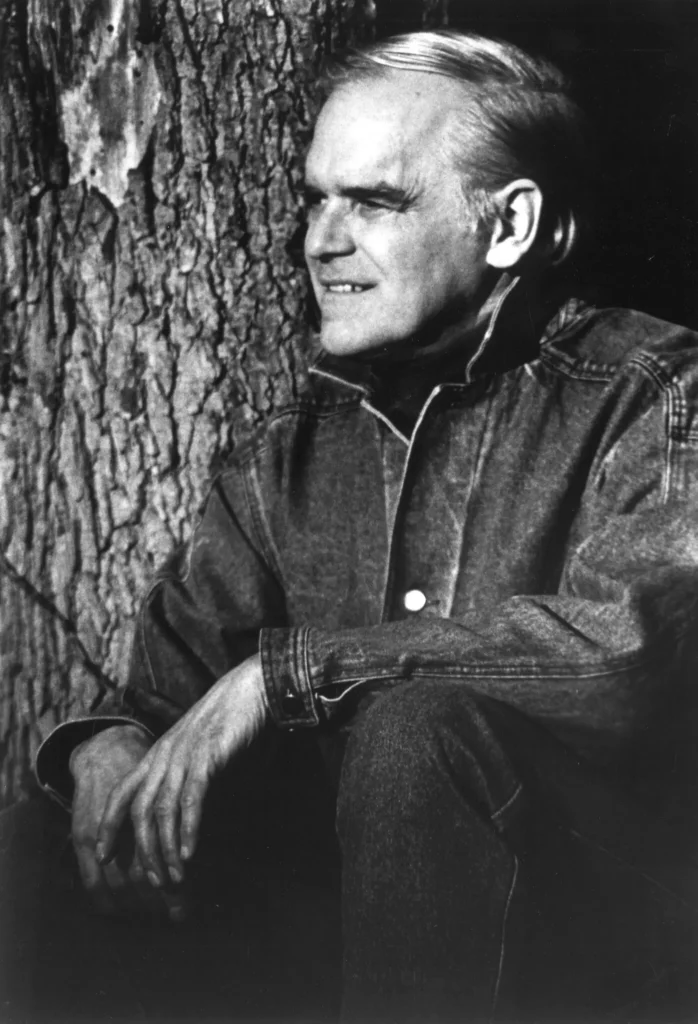In our distracted modern lives, it’s easy to go through each day feeling mentally scattered and disconnected. The present moment slips by unappreciated as we get lost in circular thoughts.
But decades before smartphones existed, poet David Wagoner shared a compelling antidote to this timeless tendency.

His poignant poem “Lost” beautifully urges us to stand still and truly take in our surroundings when feeling lost so that life’s inherent wisdom can find us again.
“Lost” by David Wagoner:
Stand still. The trees ahead and bushes beside you
Are not lost. Wherever you are is called Here,
And you must treat it as a powerful stranger,
Must ask permission to know it and be known.
The forest breathes. Listen. It answers,
I have made this place around you.
If you leave it, you may come back again, saying Here.
No two trees are the same to Raven.
No two branches are the same to Wren.
If what a tree or a bush does is lost on you,
You are surely lost. Stand still. The forest knows
Where you are. You must let it find you.
David Wagoner
Meaning of “Lost”
At its core, Wagoner’s poem encourages presence and attention when we feel mentally adrift. He tells us to “stand still” and patiently let nature guide us back to the richness of the here and now.
Wagoner argues we must let go of our churning thoughts and anxieties and pay close attention to the living details around us. By gently returning our focus to the trees, bushes, birds, and other elements of our environment, we can reconnect to nature’s grounding magic.
If we slow down and observe with fresh eyes, life’s beauty and meaning reveal themselves. But if we remain trapped spinning in our heads, unable to take in nature’s teachings, then we are “surely lost.” The forest itself can lead us back – if we’re willing to stand still and let it find us.
About the Author David Wagoner

David Wagoner was a leading American poet of the Pacific Northwest who authored over 20 poetry collections and 10 novels. Originally from the Midwest, his 1954 move to Washington State dramatically shifted his creative outlook.
Wagoner became known for insightful nature poetry, skillfully translating the region’s lush landscape into poignant verse. The natural world features prominently across his works as a guide, teacher, and source of solace.
Critics praise Wagoner for his mastery of descriptive detail, metaphor, and diverse poetic forms. His legacy urges greater reverence for nature along with self-examination when feeling adrift. Works like “Lost” remind us to slow down and let nature restore meaning.
Lessons from the Poem
Several impactful takeaways emerge from Wagoner’s poem “Lost”:
- Life’s profundity is found in the present if we cultivate mindful awareness of it. Slow down and tune into details.
- When feeling mentally scattered, return focus to your surroundings for grounding. Observe nature and your senses.
- Don’t rush by the present. Treat it as a wise teacher and guide back to your center.
- Listen to what the living world around you is communicating in the here and now. Allow it to direct you.
- If your thoughts pull you away from the present, gently redirect focus outward again.
- Staying grounded in your surroundings combats anxiety. The forest’s rhythm anchors you.
- By standing still, you give life permission to find you again. Patience opens you back up to meaning.
Conclusion:
David Wagoner’s stirring poem remains timelessly relevant in our distraction-prone era. Its call to stand still when lost, and let the present moment find you again through attentive observation, offers a ritual for rediscovering life’s magic.
Wagoner reminds us that a renewed sense of meaning and connection is available right in front of us – if only we’re willing to pause and let nature lead the way.




Pingback: If You Love Something, Let It Go: The Power and Struggle of Letting Go – Success Minded
Pingback: "Keep Going" Poem By Edgar A. Guest – Success Minded
Pingback: Finding Meaning in the Mundane: The Magic of "Homework for Life" – Success Minded
Pingback: What's Meant to Be Will Always Be: Understanding This Popular Phrase – Success Minded
Pingback: How to Embrace the Fact that Everything Can Change in an Instant – Success Minded
Pingback: Never Forget Who You Are – Success Minded
Pingback: Here's Why You Should Never Lower Your Standards for Anyone – Success Minded
Pingback: Here's Why You Don't Always Need A Plan. – Success Minded
Pingback: Make a Habit of Asking Yourself, “Does This Support the Life I Want to Create?” – Success Minded